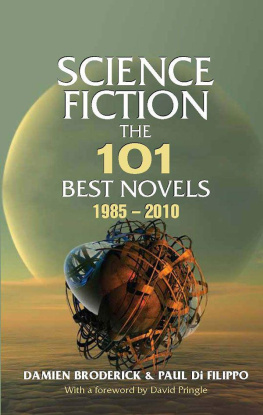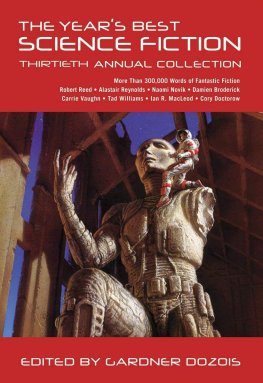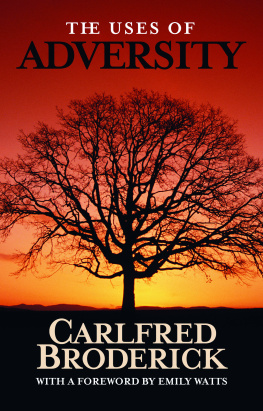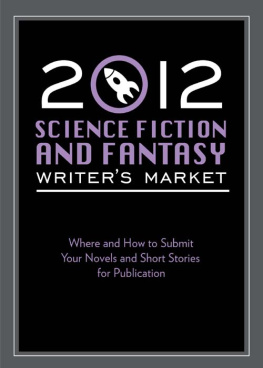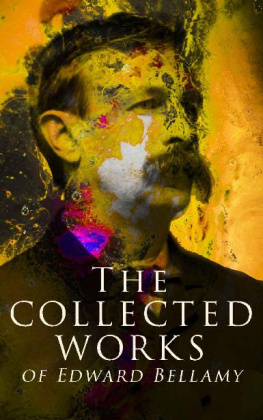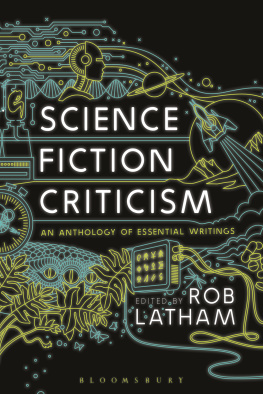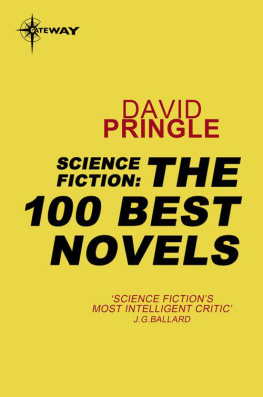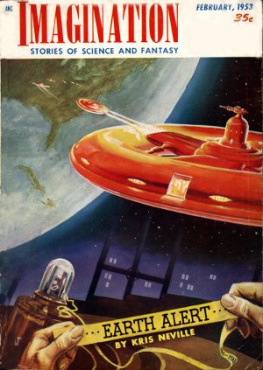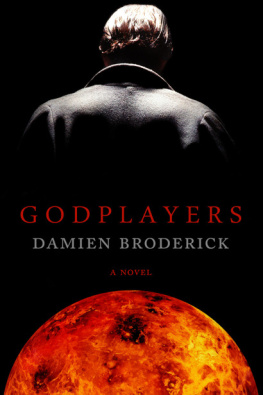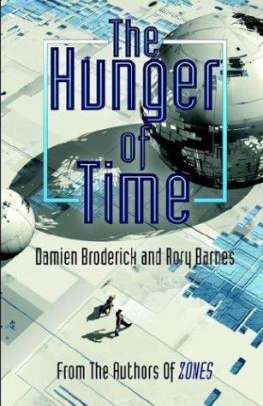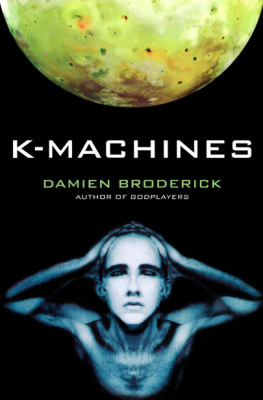Broderick Damien - Science Fiction: The 101 Best Novels 1985-2010
Here you can read online Broderick Damien - Science Fiction: The 101 Best Novels 1985-2010 full text of the book (entire story) in english for free. Download pdf and epub, get meaning, cover and reviews about this ebook. year: 2012, publisher: Independent Publishers Group, genre: Art. Description of the work, (preface) as well as reviews are available. Best literature library LitArk.com created for fans of good reading and offers a wide selection of genres:
Romance novel
Science fiction
Adventure
Detective
Science
History
Home and family
Prose
Art
Politics
Computer
Non-fiction
Religion
Business
Children
Humor
Choose a favorite category and find really read worthwhile books. Enjoy immersion in the world of imagination, feel the emotions of the characters or learn something new for yourself, make an fascinating discovery.
- Book:Science Fiction: The 101 Best Novels 1985-2010
- Author:
- Publisher:Independent Publishers Group
- Genre:
- Year:2012
- Rating:4 / 5
- Favourites:Add to favourites
- Your mark:
- 80
- 1
- 2
- 3
- 4
- 5
Science Fiction: The 101 Best Novels 1985-2010: summary, description and annotation
We offer to read an annotation, description, summary or preface (depends on what the author of the book "Science Fiction: The 101 Best Novels 1985-2010" wrote himself). If you haven't found the necessary information about the book — write in the comments, we will try to find it.
Science Fiction: The 101 Best Novels 1985-2010 — read online for free the complete book (whole text) full work
Below is the text of the book, divided by pages. System saving the place of the last page read, allows you to conveniently read the book "Science Fiction: The 101 Best Novels 1985-2010" online for free, without having to search again every time where you left off. Put a bookmark, and you can go to the page where you finished reading at any time.
Font size:
Interval:
Bookmark:
SCIENCE
FICTION
THE
BEST NOVELS
1985 2010
Damien Broderick & Paul Di Filippo
With a foreword by David Pringle

Nonstop Press New York
SCIENCE FICTION: THE 101 BEST NOVELS 1985 2010
Copyright 2012 Damien Broderick & Paul Di Filippo
Foreword Copyright 2012 David Pringle
First Edition: 2012
All rights reserved. No part of this book may be reproduced, stored in a retrieval system, or transmitted in any form, or by any means, digital, electronic, mechanical, photocopying, or otherwise, without prior permission of the publisher.
Nonstop Press books may be purchased for educational, business, or sales promotional use. For information please write: nonstop@nonstop-press.com or POB 981, Peck Slip, New York, NY, USA 10272-0981
Cover and book design by Luis Ortiz Production by Nonstop Ink
ISBN 978-1-933065-42-7 Kindle
ISBN 978-1-933065-39-7 Trade Paper
ISBN 978-1-933065-44-1 Hardcover
ISBN 978-1-933065-40-3 Epub
www.nonstop-press.com
 Nonstop Press
Nonstop Press
TIME MOVES on.
Science Fiction: The 100 Best Novels: 1949-1984 , a book I wrote in 1984 and which was published in 1985, needed a sequel by nowand here it is. More than 25 years have gone by, and many hundreds of science-fiction novels and collections have continued to pour from the English-language presses (as well as those of other languages), so some guidance as to the best of the last quarter-century is surely required. Having been unable to keep up with all those new sf works myself, I am delighted that Damien Broderick and Paul Di Filippo have taken it upon themselves to do the job, and I am very happy to endorse their excellent book.
I have read fewer than half of the novels they describe here (after 1984, as editor of the magazine Interzone until 2004, my main sf reading consisted of short storiesthousands of them); but, judging from the works I do know, I feel confident that all the less-familiar choices in this book are sound. Damien Brodericks and Paul Di Filippos qualifications for making those choices are second to none: both are creative science-fiction writers of many years standing, among the best of their time, and both have in addition written a good deal of stimulating criticism, including numerous sf book reviews. I actually included a novel by Damien in my hundred best of 27 years ago The Dreaming Dragons (1980), which I described as the best Australian science-fiction novel I know (that sounds belittling in retrospectthe book was much more than that). It has since been revised and reissued as The Dreaming . Since then, Damien has written several more fine sf novels, of which perhaps The White Abacus (1997), a knottily speculative work, is the most successful.
Of course, it would not have been seemly for the authors to include any works of their own in this new hundred best, but perhaps I can compensate for that by mentioning not only Damiens later novel, above, but also Pauls humorous Fuzzy Dice (2003) and his manically inventive short-story and novella collections such as The Steampunk Trilogy (1995) and Ribofunk (1996), some of the contents of which I had the pleasure of first publishing in Interzone . At the time I wrote my book in the 1980s, Paul Di Filippo had published no novels or collections, but if I had been writing this follow-up volume now a number of Pauls books, as well as several of Damiens, would certainly have been strong contenders for inclusion.
As for the authors whose novels are described in the following hundred or so mini-essays, I am particularly pleased to see a large contingent of those whose early stories were first published in Interzone among them, Stephen Baxter, Richard Calder, Greg Egan, Nicola Griffith, Simon Ings, Paul J. McAuley, Ian R. MacLeod, Alastair Reynolds, Geoff Ryman, and Charles Stross. I can vouch for all these writers as capable of first-rate work. And of course, many others with books discussed here are well-known names, some of them from the literary mainstreamBrian Aldiss, Margaret Atwood, the late J. G. Ballard, Iain Banks, Michael Chabon, Karen Joy Fowler, William Gibson, M. John Harrison, Kazuo Ishiguro, Ursula K. Le Guin, Jonathan Lethem, Cormac McCarthy, China Miville, Michael Moorcock, Richard Powers, Christopher Priest, Philip Roth, the late Kurt Vonnegut, and more. It is a first-rate line-up, and those readers who follow all the recommendations will have months and years of good reading before them.
A century, and a millennium, have turned since I wrote my book. The world is different, but science fiction carries on vigorously, reflecting our times back to us in imaginative formand Damiens and Pauls book celebrates that endeavor splendidly.
David Pringle
Selkirk, Scotland
SCIENCE FICTION, according to David Pringles excellent guide to the 100 best English-language sf novels in the period 1949-84, to which this volume is a kind of sequel, is a form of fantastic fiction which exploits the imaginative perspectives of modern science.
Thats true. But heres a necessary caution: most science fiction, our favorite kind of story-telling and reading, has about as much to do with real science as chick lit has to do with poultry.
(For brevity, well refer to science fiction as sf, rather than sci-fi, which is now standard journalistic parlance but, as Ursula K. Le Guin recently )
Numerous other definitions have been suggested: sf as the literature of change, indeed of radical, disruptive, wondrous change; of cognitive estrangement or conceptual breakthrough; of drastic difference from the known, safe, everyday world; of suspended disbelief and dizzying spectacle. For most of us, sf is what we see on TV or in monstrously expensive and profitable movies: warring starships roaring in the vacuum of space, warriors and explorers plunging through wormholes to far stars, robots helpful or malign, parallel worlds, psychic clones, time machines carrying the unwary into the gulfs of the future or dangers of the past, or a hundred and one other locales beyond the known realities of our sometimes humdrum lives. All this is valid enough, but it is not the whole or deepest truth, especially of sf literature.
For sf, as Le Guin added, is not about the future, or space travel, not really. For all the legitimate or sham apparatus of science and technology deployed in these tales, they are not about science, by and large. Rather, for Le Guin, a very distinguished practitioner of the art, sf is a metaphorical way of dealing with our current reality.
The shorthand idiom sf is basically a commercial term describing a certain genre of fiction. That is, its more a marketing tool than a literary category like drama or pastoral verse . It is a label designed to guide purchasers or library readers to a stack of books (or movies, comics or TV shows) that share a certain common appeal.
But what is it about a genre that makes its appeal so reliable, so rewarding to merchants? Many readers with literary credentials disapprove of writing they dismiss as genre: romance, say, or thrillers, westerns, horror, science fiction. These kinds of storytelling they suppose to be intrinsically inferior and limited compared to their prized literature, otherwise known to scholars as bourgeois realism, or psychological realism, which is itself just another genre that can be sharp, brilliantly incisive, emotionally involving, or soggy, comfortable, and routine.
But waitthats an oversimplification, too, because a glance at The New York Review of Books or the Guardian s book review pages reveals a literary appetite for many varieties of fiction or styling, some of them blurring into the kinds of writing marketed since the 1960s as science fiction. Franz Kafkas phantasmagorical fables remain evergreen, Latin American magical realism was fashionable a decade or two back, John Barths rich and zany metafictions had their day, while nobody doubts that Dantes allegorical adventures in Purgatory and Hell in The Divine Comedy and Don De Lillos absurdist Airborne Toxic Event in White Noise are as heavy-duty literary as it gets.
Font size:
Interval:
Bookmark:
Similar books «Science Fiction: The 101 Best Novels 1985-2010»
Look at similar books to Science Fiction: The 101 Best Novels 1985-2010. We have selected literature similar in name and meaning in the hope of providing readers with more options to find new, interesting, not yet read works.
Discussion, reviews of the book Science Fiction: The 101 Best Novels 1985-2010 and just readers' own opinions. Leave your comments, write what you think about the work, its meaning or the main characters. Specify what exactly you liked and what you didn't like, and why you think so.

